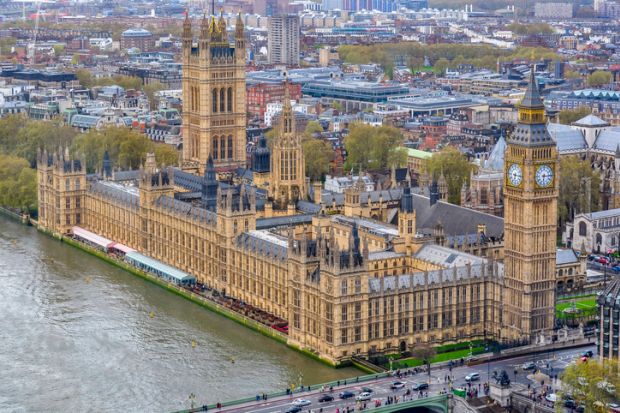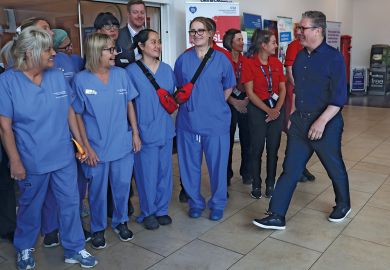Labour has confirmed plans to create a new skills body for England and to reform the apprenticeship levy in the first King’s Speech of the new parliament.
There was no mention of universities or research as King Charles outlined the priority legislation for the incoming government in the House of Lords and in interviews after the speech education secretary Bridget Phillipson appeared to rule out providing further funding to institutions.
The King did say, however, that ministers will “seek to raise educational standards and break down barriers to opportunity”.
“My government will establish Skills England, which will have a new partnership with employers at its heart, and my ministers will reform the apprenticeship levy,” the monarch added in the section of the speech most relevant to higher education.
In background notes for the speech, the remit of the new body was outlined. It will bring together “businesses, providers, unions, mayoral combined authorities (MCAs) and national government to ensure we have the highly trained workforce that England needs”, the document says.
Skills England will also be responsible for identifying the training courses that will be eligible for funding under the expanded “growth and skills levy”.
Currently the money, collected from businesses with an annual pay bill of more than £3 million, is available for use only on apprenticeship opportunities including degree apprenticeships offered by universities.
Labour plans to expand the remit after more than £3.5 billion of unused levy funds were returned to the Treasury earlier this year.
Courses deemed to align with the country’s skills needs will become eligible, offering a potential new revenue opportunity for universities.
The document also confirmed plans to devolve funding for skills, stating that “MCAs and the Greater London Authority will be responsible for 62 per cent of the Adult Skills Fund budget in academic year 2024-25 and further devolution is planned”.
Asked on the BBC’s World at One programme what was in the speech for universities, Ms Phillipson highlighted how higher education will be an important part of skills training.
“Alongside that, I do know that the legacy that the Labour government has inherited is one where universities are facing significant financial challenges,” she added.
“There is a lot that believe we can and will do to ensure there is good regulation and oversight of what has gone on. We’ve started that work already. The Office for Students, for example, we’ve begun to make changes there because the system we have had hasn’t delivered.”
Pressed on whether she would put up the cost of going to university for students or whether she would give universities more money, Ms Phillipson said: “We have no plans in that space because we want to make sure we are putting universities on a more sustainable footing overall.”
Part of this, she said, was international students and she said “we won’t make our universities and the people who study there the subject of headlines, a political battleground”, adding that the graduate route had worked “very successfully”.
Reacting to the speech, Joe Marshall, chief executive of the National Centre for Universities and Business, said: “As always, the devil will lie in the detail, but the aim to have a more flexible levy than in the past is very welcome.
“The nation’s businesses are dealing with an acute and severe skills crisis. Skills gaps and vacancies have been persistently high at around 1 million, yet businesses face barriers to upskilling their staff and accessing new talent.”
Allowing companies to draw on levy funds to increase the skills of the workforce had long been needed, Dr Marshall said, and he hoped that “a more flexible levy will meet business needs by expanding the variety of high-quality training available to young people and adults”.
Sir Peter Lampl, the founder of the equality charity the Sutton Trust, cautioned that the changes could reduce the number of apprenticeship opportunities available and said the reforms “must be accompanied by a plan to significantly increase apprenticeships targeted at young people from less well-off backgrounds”.
Jo Grady, the general secretary of the University and College Union, welcomed commitments in the speech to phase out zero-hours contracts, adding that “the thousands of staff members working in post-16 education on precarious contracts will want to see this enacted as quickly as possible”.
Register to continue
Why register?
- Registration is free and only takes a moment
- Once registered, you can read 3 articles a month
- Sign up for our newsletter
Subscribe
Or subscribe for unlimited access to:
- Unlimited access to news, views, insights & reviews
- Digital editions
- Digital access to THE’s university and college rankings analysis
Already registered or a current subscriber? Login






